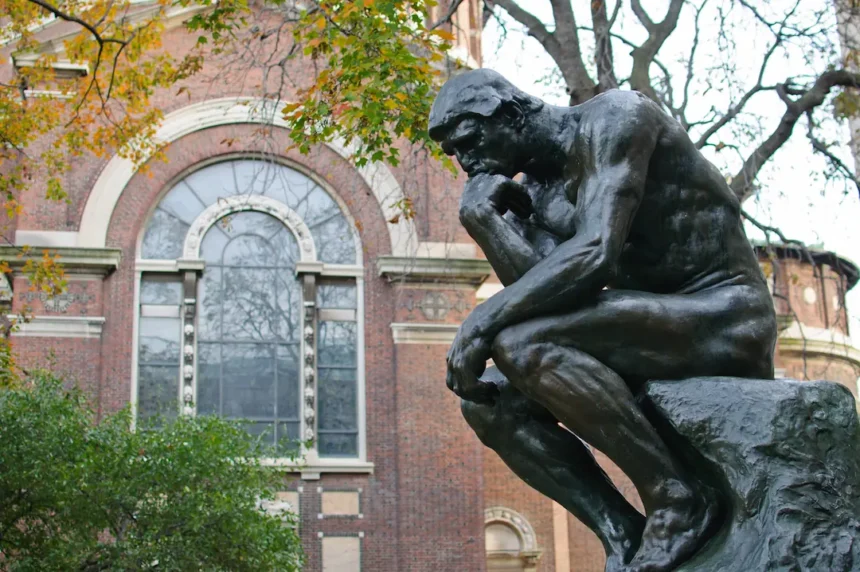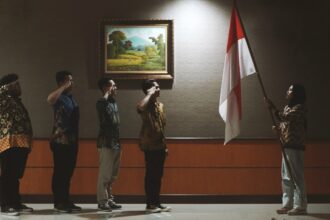Democracy in solitude? The idea seems confused. After all, democracy is the rule of the people, taken together as a citizenry. Democratic governments thus are tasked with realizing the will of the majority. Indeed, much of the architecture of democracy is designed to reveal what the public wants. It seems, then, that democracy is essentially a group endeavor.
The idea of democracy as inherently collective is bolstered by a Google Images search of the phrase “This is what democracy looks like.” The search returns thousands of images, all depicting the same thing: masses of people gathered in a public space for the purpose of communicating a shared political sentiment. Democracy looks like public and collective action. Consequently, the idea of democracy in solitude may be worse than confused —solitude is arguably nondemocratic.
Mass public action depicts democracy only when the participants are sincere about the message their activity aims to communicate.
However, as I argue in my new book Civic Solitude, there is more to democracy than meets the eye. Democracy is indeed a collective, public endeavor that depends on an active citizenry. But action is not enough. Citizens also need to be reflective. It turns out that the necessary reflection calls for occasions of solitude.
Does Democracy Look Like Anything?
To see what I mean, consult the search results for “this is what democracy looks like.” Select your favorite picture.
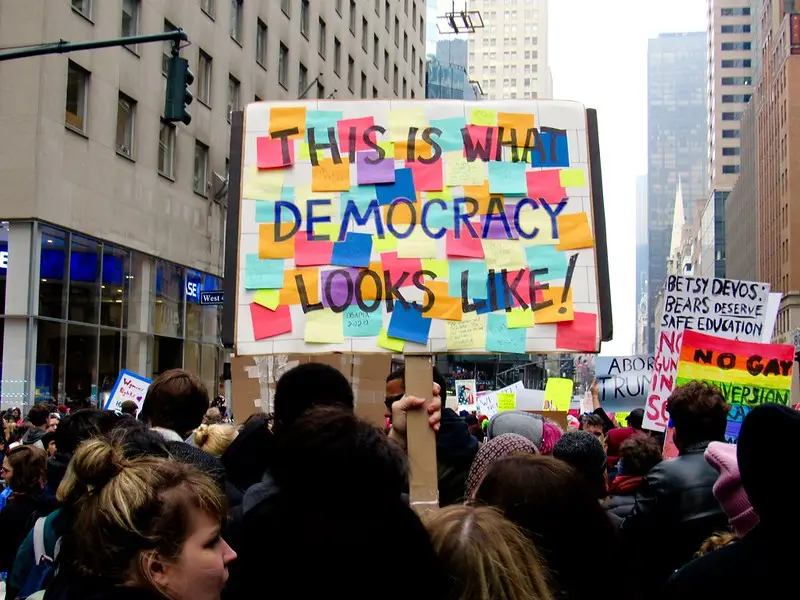
Now imagine learning that the people in the photo are all paid actors who were given political signs, taught chants, and sent into public to enact a political demonstration. Suppose further that but for the money, none would have showed up.
Notice how your attitude shifts. The photo depicts citizens gathered in public space to communicate a political message, but something’s missing. Citizenship isn’t acting. We might say that mass public action depicts democracy only when the participants are sincere about the message their activity aims to communicate. They must be advocates who are engaged in the demonstration for the purpose of communicating that message.
Collective public action manifests democracy only when the participants are sufficiently informed.
Consider another example. Return to the image, but now suppose the participants are fundamentally mistaken about the political message they are conveying. Assume they’re carrying signs supporting a policy that they believe will make medications more affordable, but which actually proposes to make them more expensive.
Here, citizens are engaged in mass political action for the purpose of communicating a shared message. The trouble is that they are fundamentally mistaken about what the message means. We might conclude that collective public action manifests democracy only when the participants are sufficiently informed (or at least not radically misinformed).
Combining the two cases, we can say that in order for collective political action to depict democracy in any laudable sense, the participants must be both motivated by their message and adequately informed. The notable feature of these two requirements is that neither can be captured in a picture. We can’t discern a person’s motives or degree of informedness simply by looking. Ultimately, democracy doesn’t “look like” anything. It can’t be photographed.
Democracy as a Civic Ethos
This is because democracy has to do with the attitudes and habits that underlie our political activities. Democracy is a matter of what goes on inside of us. Whether an activity – collective of otherwise – exemplifies democracy depends on what we bring to it.
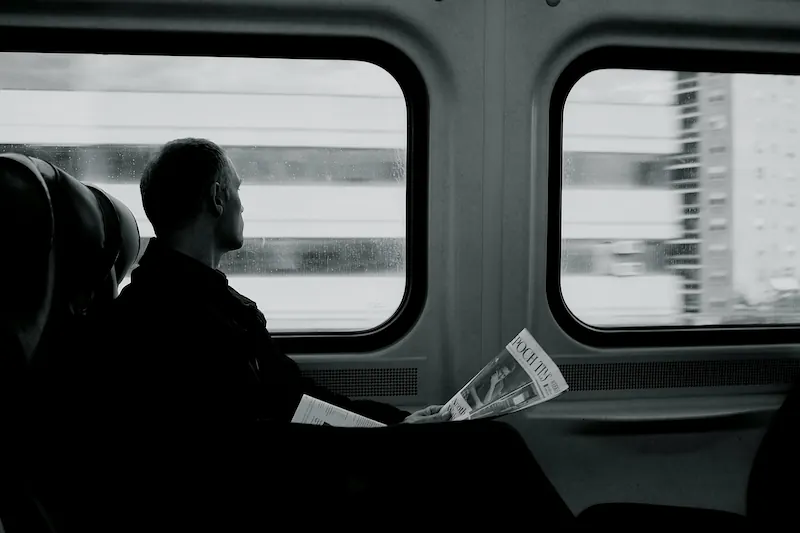
We can say that democracy is a civic ethos. This ethos derives from the basic ideal of self-government among equals. To be clear, this ideal identifies an aspiration. A democratic society is one that is striving more fully to become a self-governing society of equals. And that aspiration calls us to cultivate within ourselves the competencies that enable us both to advance justice and to duly recognize the equality of our fellow citizens.
Our more extreme selves are also more conformist.
Notice that the democratic civic ethos has two parts. One corresponds to the idea that citizens must be politically active: we must work politically to advance justice.
However, the other part requires us to recognize the political equality of our fellow citizens, and this means that we must endeavor to understand their perspectives; it therefore calls for a kind of reflection. In short, democratic citizens need to be both politically active and politically reflective.
That’s not an unfamiliar idea, of course. However, it is often overlooked that the dual requirements of responsible citizenship can conflict. Familiar modes of otherwise essential democratic action can undercut our capacities for political reflection. In this way, democracy’s civic ethos is subject to something like an auto-immune disorder.
Democracy’s Auto-Immune Disorder
The culprit is a cognitive group dynamic called belief polarization. Belief polarization is the tendency of individuals to shift into more extreme versions of themselves in the course of interactions with likeminded peers. The phenomenon has been studied all around the world and does not vary significantly across differences of ethnicity, race, gender, religious identity, economic position, or age.
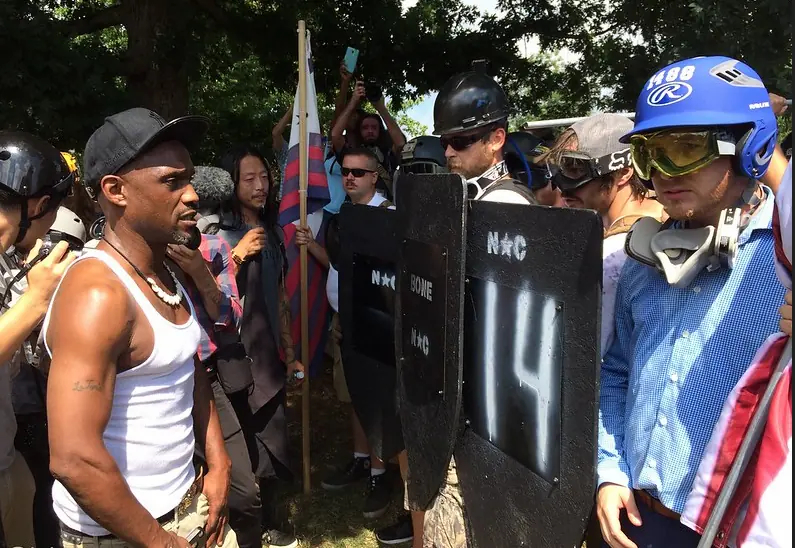
What’s more, it’s entirely general in that likeminded groups shift towards extremity regardless of the nature of their shared belief. One finds belief polarization among those who are agreed on some banal matter of empirical fact (e.g., the city of Denver is notably high above sea level) as well as among those who share some controversial moral judgment (e.g., capital punishment is always impermissible).
Crucially, belief polarization causes people to shift towards more extreme beliefs while also boosting their confidence in their beliefs. Belief polarization hence also intensifies our negative assessments of those who do not share our views. We come to see them as progressively irrational, incompetent, disingenuous, untrustworthy, radical, and benighted.
As our negative stance toward outsiders intensifies, the task of maintaining clear borders between our allies and foes becomes increasingly salient. As a result, we grow more insistent on homogeneity among our allies. Our more extreme selves are also more conformist. Further, as our alliances become more internally homogeneous, they also grow more hierarchical and less tolerant of internal disagreement. Belief polarized coalitions thus tend to splinter.
The Problem of Polarization
It’s important to emphasize that these dynamics are driven entirely by our groupish tendencies. In other words, the extremification and escalation that characterizes belief polarization is not responsive to reasons or evidence. We grow more contemptuous of our foes and more insistent on conformity among our allies on the basis of artificial projections of who they are and what they think. Belief polarization hence distorts our political perspective.
Political affiliation is better regarded as a lifestyle than a political stance.
Note that although “polarization” is usually discussed as a feature of the relationship between opposed political groups, we are here talking about a collection of cognitive and affective tendencies that occur within members of a likeminded group. Belief polarization is caused by group dynamics, but its effects are internal to us.
Now, it’s obvious that these tendencies are pathological from the perspective of the democratic aspiration. Belief polarization undercuts both sides of democracy’s civic ethos. It erodes our ability to form stable coalitions with our allies; it thus impairs our ability to advance justice. It also drives us to adopt an exaggeratedly hostile stance towards our political opponents; it therefore undermines our capacity to understand their perspectives.
Notice that the otherwise laudable activities of engaged citizenship expose us to belief polarization. That is, in the ordinary course of meeting the requirement to be politically active, we undermine our capacity for political reflection. As a result, belief polarization cannot be eradicated from democracy. It can only be managed. Thus, the idea of an auto-immune disorder is apt.
Managing Polarization
Managing polarization is difficult because our everyday social environments are already saturated with triggers of our political reflexes. It is no exaggeration to say that in many contemporary democracies – perhaps especially the United States – members of opposed political coalitions live in distinct social worlds. In the United States, routine consumer choices family size, occupation, leisure activities, and even aesthetic preferences are tied to partisan identity.
We need social distance from our allies and foes alike, and thus from the activators of partisan animosity and in-group conformity.
For this reason, political affiliation is for this reason better regarded as a lifestyle than a political stance. This means that our day-to-day social environments tend to place us in contact only with people who are politically just like ourselves, thus instigating belief polarization and undercutting the democratic aspiration.
To advance the democratic aspiration, then, we need to manage belief polarization. And as belief polarization is fundamentally a collection of internal tendencies, the management task must begin within us. To start, we must recognize our own vulnerability to the dynamics of cognitive and affective escalation. We must also acknowledge that our social environments are already inundated with partisan signals that cue our group loyalties and biases.
The Need for Solitude
Given these realizations, the idea that democracy calls for occasions of solitude falls into place. Managing polarization is partly a matter of scrutinizing our political reflexes. However, the ordinary social spaces that we inhabit are primed to trigger the very impulses we need to assess. Hence, we must occasionally remove ourselves from those environments. We need social distance from our allies and foes alike, and thus from the activators of partisan animosity and in-group conformity.
We also need conceptual distance from the idiom of current politics. This is, to gain the perspective on ourselves that enables us to manage polarization, we need occasionally to engage in a kind of reflection that is civic, yet not prepackaged in the vernacular of contemporary partisanship. We need to encounter political perspectives that are not readily legible from the confines of our political idiom, we need to expand the spectrum of our political thinking.
The proposal remains vague. Hopefully the general idea is clear: to manage polarization, we need to take a perspective on our ourselves that can be achieved only by gaining distance from our political circumstances. My proposal is that the necessary distance calls for us to occasionally occupy spaces that allow for a kind of solitary reflection that engages political ideas, problems, and categories that lie outside the familiar vernacular within which contemporary politics is embedded.
This kind of displaced, isolated reflective activity is what I call civic solitude. It can be exercised in places that are quiet and non-commercial, but which also make available ideas that are not prepackaged in the idiom of contemporary politics.
Think of public libraries and museums. These spaces allow us to be alone with our thoughts while also exposing us to encounter perspectives that are alien, that do not permit reversion to our partisan reflexes. In encountering such perspectives, we become able to perceive the constraints and limitations of our political vocabulary and the corresponding partisan categories it generates. And seeing our political identities in that way is a necessary first step in managing polarization.
Quiet time in the library or museum is an act of citizenship? Yes! This sounds odd, I realize. But part of the oddness is due to an overemphasis on the active, participatory elements of responsible citizenship. This leads to the presumption that reflection is a luxury, which in turn suggests that the spaces where one can engage in such activity are amenities. The civic solitude proposal resists this.
If civic solitude is indeed a necessary element of responsible citizenship, then the resources needed to engage in it must be seen as democratic necessities for all citizens, rather than as bonuses available only to the privileged few. Ultimately, then, seeing civic solitude as necessary for democratic citizenship supports political initiatives that expand citizens’ access to free time and the spaces that enable them to be alone with their thoughts.


